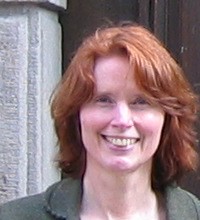So you read one more article that went into great analytic detail with respect to something that seems ordinary. Just as we belabored defining cyberspace and then spent two classes examining the "meaning" of links and genres -- concepts which you understand and can use intuitively -- now we spent a class examining the "literacies" associated with eBay. At this point is might feel safe to say that this class is about making "mountains out of molehills." Yeah. I guess it is.
Applying critical, reflective analysis to "ordinary" practices allows us to understand our culture and our selves in more depth. It allows us to identify and generalize why particular interactions play out as they do. Saying that online writing is like both speech and print is both obvious and profound. It is obvious if we leave it with the surface generalization, and it is profound if we identify the features of writing and the features of speech which online writing has appropriated, and then try to theorize and understand what these features allow us to say and the kinds of social interactions they structure. So, yep, that's what we're doing. We are spending a great deal of time taking an exhausting, if not exhaustive, look at what is happening to literacy and writing in the digital age.
For any of you who were interested in my brief overview on the future of internet governance, a copy of the report can be found at http://www.wgig.org. Reading the background report will help you understand the recent political history which caused the group to be formed. The speaker at the conference was Peng Hwa Ang, Dean of School of Communication at Nanyang Technological University in Singapore.
Wednesday, October 12, 2005
Subscribe to:
Post Comments (Atom)

No comments:
Post a Comment